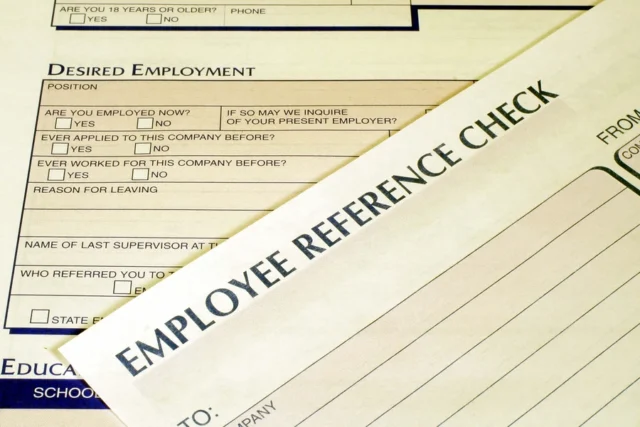When you’re applying for new jobs, potential employers are likely going to want to do a pre-employment background screening.
Unlike a free background screening that you can do on anyone online, many employers will use paid third-party services. Under the Fair Credit Reporting Act (FCRA), if an employer uses a third party to do a background check, they are required to get your explicit, written consent.
So can you say no to a pre-employment background screening, and if so, what happens?
Understanding Pre-Employment Background Checks
It’s important for businesses to do thorough screenings on people before they hire anyone. This protects other employees, clients, and it can also reduce the liability exposure for the business. See Montana background checks as an example.
An employer doesn’t want to hire someone who’s a potential risk, and background checks are one of the primary ways to make that determination and find any issues that could affect the business.
Along with safety and security, pre-employment background checks are also for identity verification to make sure someone is actually who they say they are and they have the right to work in the U.S. A background screening can look not only at criminal history but also verify employment and education history. These screenings will often look at motor vehicle records, too, especially if the job includes driving.

Some employers will do credit checks, especially if the person has access to company funds.
The Fair Credit Reporting Act
The FCRA determines how employers can ask for, receive and also use background checks from a third party. Before an employer can access a consumer report for the purposes of employment, again, they have to notify someone in writing and get written consent.
If an employer decides not to hire someone because of their report, they have to give a pre-adverse action disclosure. That will include a copy of the credit report and, along with it, a copy of the applicant’s rights.
The employer has to let the person know they have decided not to hire them, and they have to provide the address and name of the Consumer Reporting Agency. They also have to give the applicant information so they can dispute their report.
Can You Say No?
If you’re applying for a job and the prospective employer asks you for consent to check your background, you can say no. However, the vast majority of employers do these screenings, and if you say no, an employer can decide against hiring you because of this reason alone.
If you don’t consent, the employer can’t run a check through a consumer reporting agency, nor can they get your credit report.

Some job candidates do say no to a screening if they’re worried something could show up that would prevent them from getting the job. Other candidates will refuse to consent simply because they believe it’s an invasion of their privacy.
For companies that have an internal policy about background checks, the screening report is usually a precondition for the candidate to be able to move to the next phase of recruitment. If a candidate refuses a background check, the employer can’t make any individual assessments.
If the policy is being used, this should mean that any future co-workers of a candidate went through the same procedures for background checks.
Background checks should also only serve as one of many parts of the recruitment process.
If an employer doesn’t have a background check policy, it can be a problem for them because there are risks involved. For example, if an employer checks one candidate’s background and not the other, a case for discrimination could be made.
Employers should be clear and transparent when speaking with candidates about why they want to do a background check. You need to tell them how you’ll do it, and you should let the candidate know you’ll be requesting permission as soon as you can in the recruitment process. That will increase the sense of confidence and trust the candidate has in the employer, and the earlier the candidate knows about the background check, the more positive they’re probably going to feel about it.
You don’t want to catch someone off-guard when they’ve already gone through several phases of the recruitment process because even if there’s nothing on their background, they may feel like you were deceptive.

To sum up, yes, a job applicant can refuse a background and credit check. That’s well within their rights, but the employer can similarly say they aren’t going to hire them if they refuse.







